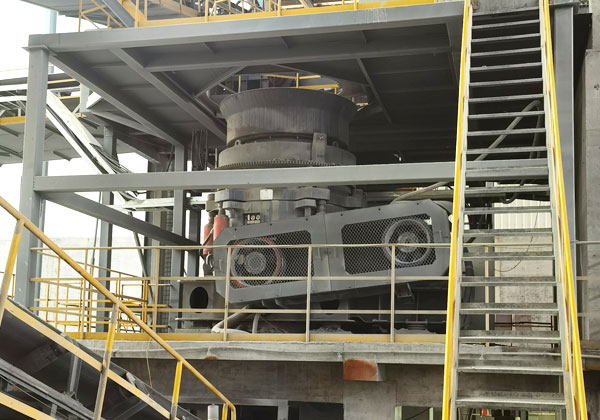The quarry industry continues to demand high-efficiency crushing solutions to meet growing production requirements while maintaining cost-effectiveness. Large-capacity cone crushers have become essential equipment in modern quarries, offering superior throughput, energy efficiency, and product quality. This analysis explores the technological advancements, benefits, and key applications of these machines in quarry operations.
Key Advancements in Large-Capacity Cone Crushers
1. Enhanced Crushing Performance
Modern large-capacity cone crushers, such as the Nordberg® HPe™ series and HPT hydraulic cone crushers, incorporate advanced crushing chamber designs for improved particle shape and higher reduction ratios. These innovations ensure optimal utilization of raw materials, reducing waste and maximizing quarry profitability.
2. Automation & Smart Control Systems
New-generation crushers feature intelligent control systems that optimize operational parameters in real time, enhancing efficiency while minimizing downtime. Automation allows for remote monitoring, predictive maintenance, and adaptive crushing adjustments, leading to more consistent production.
3. Energy Efficiency & Sustainability
With rising energy costs and environmental regulations, leading manufacturers focus on energy-saving designs. Hydraulic systems and variable-speed drives improve power efficiency, lowering operational costs for quarry owners.
4. Improved Durability & Wear Resistance
High-grade alloys and advanced wear components extend equipment lifespan while maintaining crushing performance. Large-cone crushers now feature reinforced structures to handle tough quarry conditions, reducing maintenance frequency.

Benefits for Quarry Operators
- Higher Throughput: Machines like the HPT hydraulic cone crusher and large-capacity Nordberg models support continuous high-volume production, ideal for large-scale quarrying operations.
- Better Product Quality: Uniform particle shape and size distribution improve the marketability of crushed aggregates for construction and infrastructure projects.
- Cost Efficiency: Reduced energy consumption and longer wear life contribute to lower total cost of ownership.
- Versatility: Capable of processing various rock types, including granite, basalt, and limestone, making them adaptable to different quarry environments.
Industry Applications
Large cone crushers play a vital role in:
- Aggregate production for road construction and concrete manufacturing.
- Mining applications, including processing hard ores in conjunction with quarry operations.
- Large-scale infrastructure projects needing high-quality, high-volume aggregates.
Case Example: HPT Hydraulic Cone Crusher
Used in quarries for its superior crushing force and automation capabilities, this machine ensures stable operation with minimal downtime. Its ability to produce well-graded output makes it ideal for high-demand construction projects.
Market Trends & Future Outlook
While cement companies expand into sand and gravel production due to market synergies, quarry operators increasingly adopt high-capacity cone crushers to:
- Meet rising demand for construction materials.
- Comply with stricter environmental regulations through energy-efficient designs.
- Improve profitability via advanced automation reducing labor costs.
Large-capacity cone crushers are transforming quarry operations, offering unmatched throughput, efficiency, and automation. While the initial investment is high, their long-term value lies in reduced operating costs, consistent aggregate quality, and alignment with modern sustainability requirements. For quarries aiming to stay competitive in a fast-evolving construction materials market, these machines represent a critical strategic investment.
For long-term success, quarry operators should evaluate models based on throughput, reliability, and total operational costs, aligning their equipment choices with production goals and market demands.
